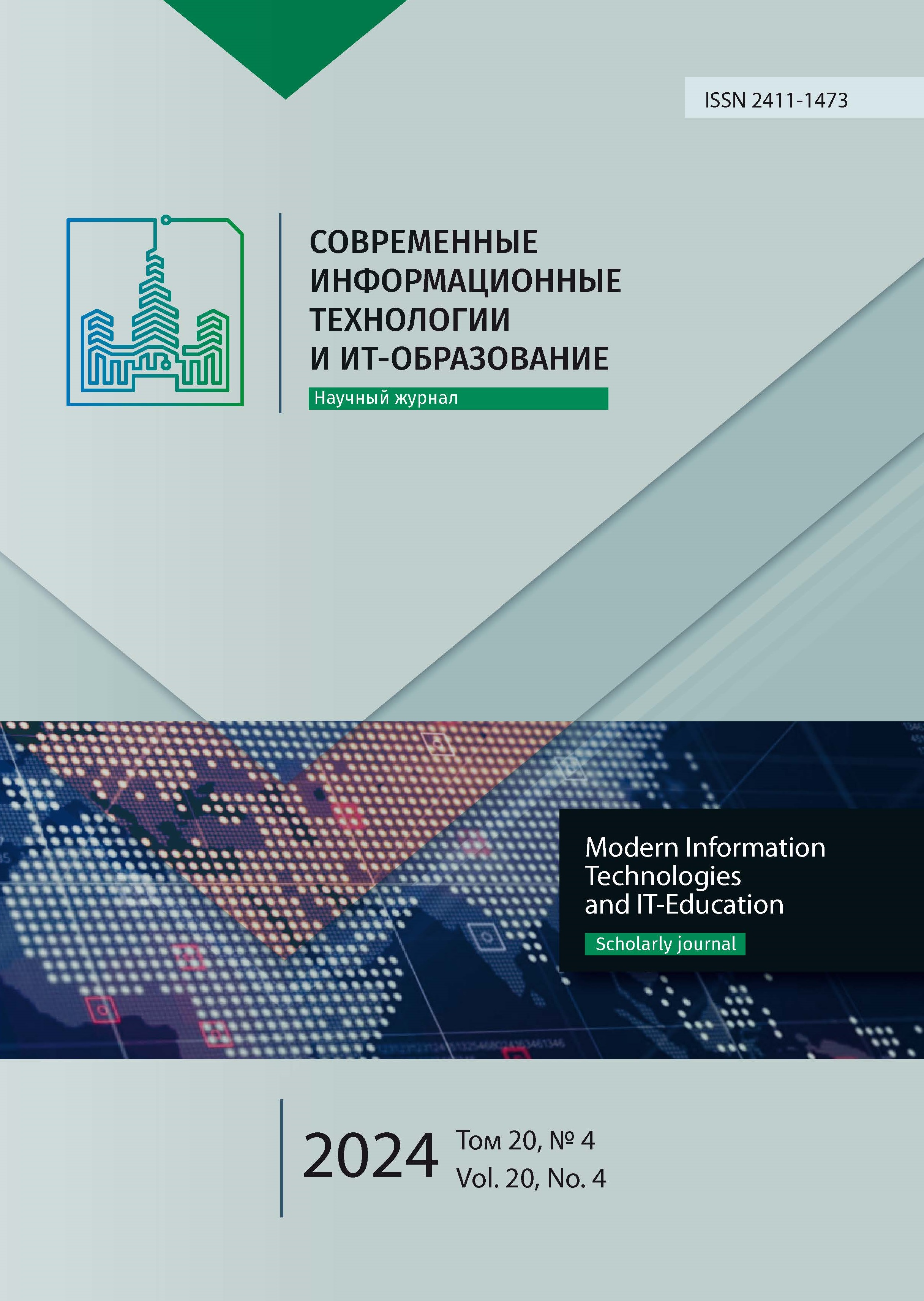Дообучение больших языковых моделей в контексте архитектур мониторинга научно-технической информации
Аннотация
Статья посвящена исследованию и опытной реализации алгоритмов и архитектур мониторинга научно-технической информации, направленных на минимизацию времени обслуживания мониторинга и повышение доступности мониторинга как инструмента персонально-ориентированного информирования и поддержки аналитической деятельности пользователя по интересующим его вопросам научно-технического развития. Предложен алгоритм модели мониторинга научно-технических публикаций в сети Интернет, позволяющий параллельно с обработкой метаданных базы знаний проводить генерацию прогнозных отчётов. Разработан механизм автоматического вывода прогнозных справок о развитии отрасли науки и техники, построенный на базе искусственной нейронной сети, основанной на принципах большой языковой модели, дообученной на фактах из сети понятий разработанной автором базы знаний. Разработан алгоритм применения дообученной искусственной нейронной сети типа «Большая языковая модель (Large Language Model)» на 1000-узловом видеопроцессоре для распознавания научно-технических проблем, а также формирования аннотаций и отчётов о состоянии области техники, позволяющий ускорить процесс мониторинга в десятки раз по сравнению с применением общедоступных необучаемых сетей, работающих на CPU. Предложен способ эксплуатации дообученной искусственной нейронной сети, основанный на обработке большой языковой модели с применением видеопроцессора с поддержкой технологии CUDA и размещением большой языковой модели локально в ОЗУ. Полученные автором результаты позволяют выдвинуть новый класс информационно-справочных систем – персонально-адаптируемые информационно-справочные и аналитические мониторинговые системы, обеспечивающие накопление и актуализацию знаний по вопросам развития науки и техники в соответствии с индивидуальными интересами и предпочтениями пользователя.

Это произведение доступно по лицензии Creative Commons «Attribution» («Атрибуция») 4.0 Всемирная.
Редакционная политика журнала основывается на традиционных этических принципах российской научной периодики и строится с учетом этических норм работы редакторов и издателей, закрепленных в Кодексе поведения и руководящих принципах наилучшей практики для редактора журнала (Code of Conduct and Best Practice Guidelines for Journal Editors) и Кодексе поведения для издателя журнала (Code of Conduct for Journal Publishers), разработанных Комитетом по публикационной этике - Committee on Publication Ethics (COPE). В процессе издательской деятельности редколлегия журнала руководствуется международными правилами охраны авторского права, нормами действующего законодательства РФ, международными издательскими стандартами и обязательной ссылке на первоисточник.
Журнал позволяет авторам сохранять авторское право без ограничений. Журнал позволяет авторам сохранить права на публикацию без ограничений.
Издательская политика в области авторского права и архивирования определяются «зеленым цветом» в базе данных SHERPA/RoMEO.
Все статьи распространяются на условиях лицензии Creative Commons «Attribution» («Атрибуция») 4.0 Всемирная, которая позволяет другим использовать, распространять, дополнять эту работу с обязательной ссылкой на оригинальную работу и публикацию в этом журналe.













